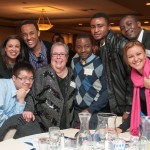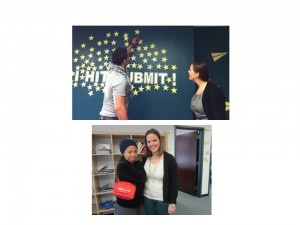
Amy, a fourth-year student at University of Illinois at Urbana-Champaign, will be among the first generation in her family to graduate from college in the United States, and she’s grateful for how her experience in college is preparing her for her career.
“For me, college is really important, and I’m thankful for the opportunity because you learn so much…It’s an opportunity to use all your knowledge and get more in-depth training and practice for real life,” she said.
Amy has been a part of Bottom Line since she was a high school senior in the Access program, and is now a part of the college Success program.
“Working with [my Advisor], I feel really great. She’s helped me every time I need her,” she shared.
Whether it was working on the long and complicated verification process for financial aid or learning more about how to find and land internship opportunities, Amy and her Advisor partnered to ensure she had the resources she needed to continue being successful throughout her educational journey.
With COVID-19 only exacerbating existing challenges for students looking for career-relevant experience, Amy was excited to interview for and participate in a Bottom Line externship at ARCO/Murray last summer.
An externship is a short-term, paid opportunity that allows an undergraduate student to be exposed to a specific industry, role, and/or office environment. The goal of externships is to provide students with short term career relevant experiences early on in their college careers to build career-related competencies, build professional networks, and become more competitive for future internships and post-college opportunities.
Amy had the opportunity to observe different roles and teams each day, visit job sites, attend client meetings, and be a part of different projects.
“Every day is packed, so I saw a lot of things I didn’t know before and was able to get hands-on experience,” she shared.
In addition to the hands-on experience, Amy was also able to learn more about the interview processes she could expect moving forward in her field through in-depth conversations with her externship program director.
Looking ahead to summer 2022, Amy has already had two internship offers, and has accepted an internship at mid-sized construction company.
Reflecting on her professional development experience thus far, she hopes that students earlier in their education are also able to focus on early professional development opportunities while also finding balance.
“Networking is the main game in finding a job, and internships are a great way to get experience. A lot of companies now have the expectation that you’ll have internship experience before you go into the job market,” she shared. “…But college is not just studying, and you should enjoy your time. Join a student organization that will give you free time and balance yourself.”
After she graduates in December 2022, Amy plans to continue her work at an international construction company that reflects her interest in diverse cultures.






